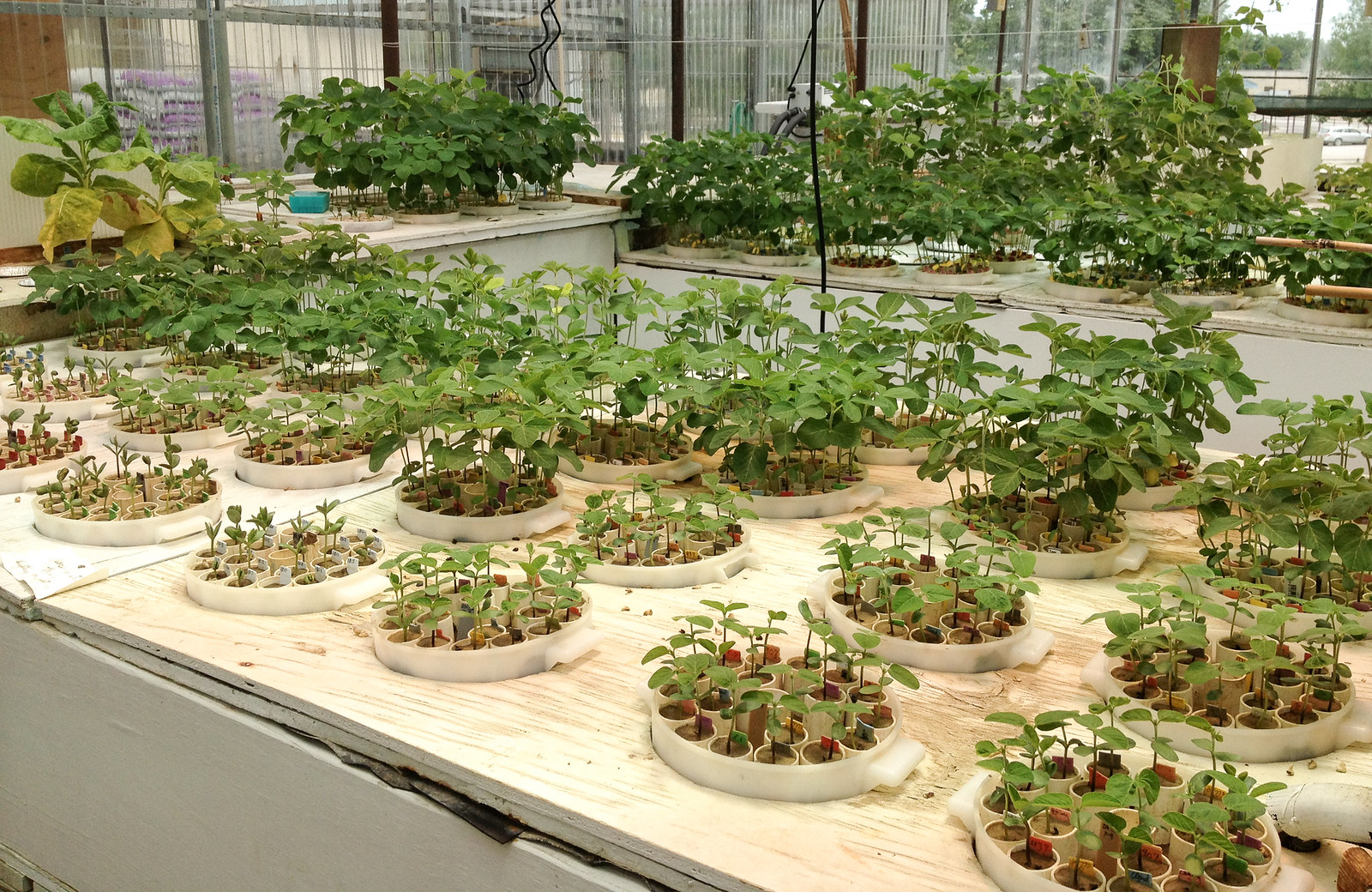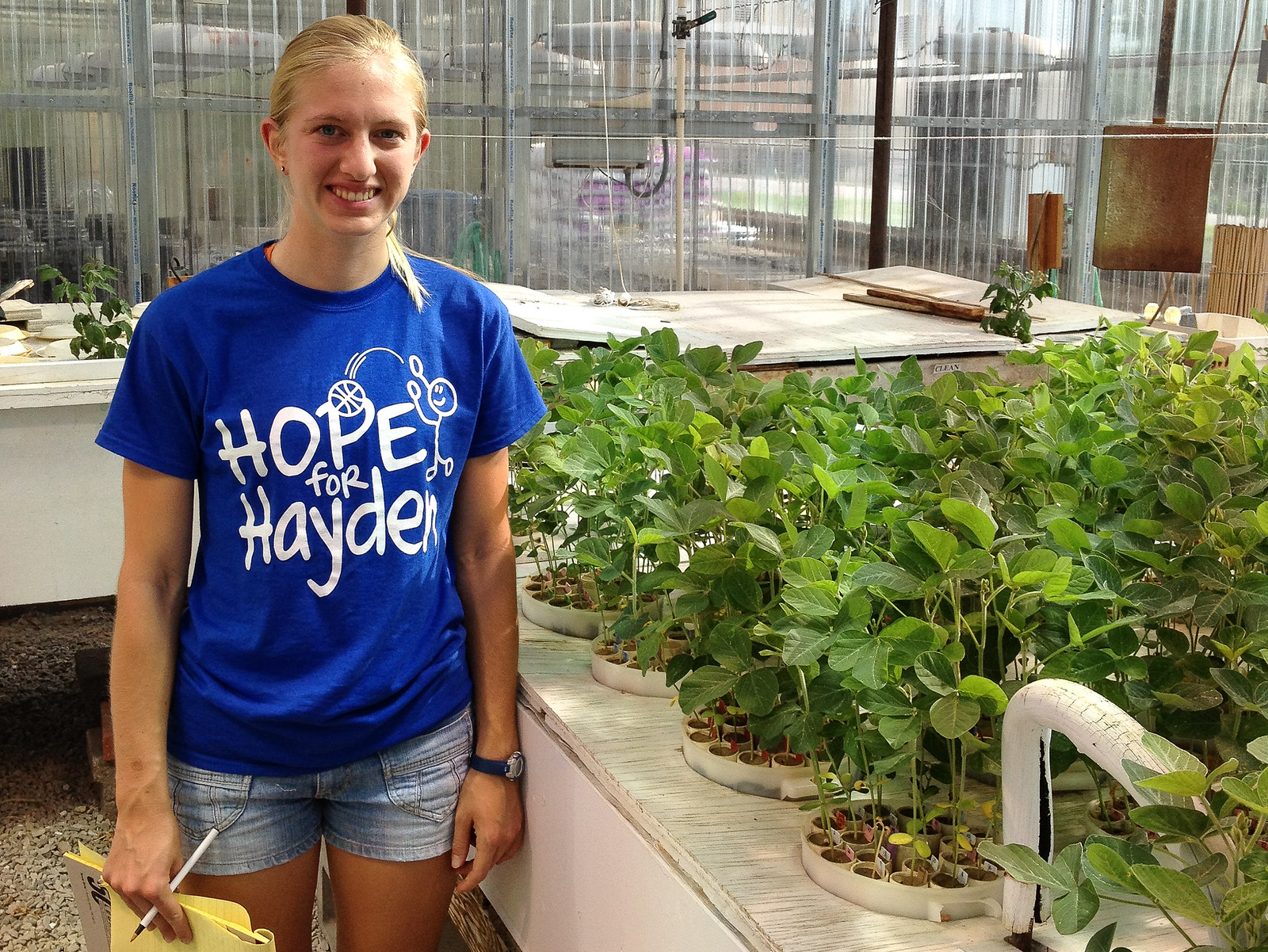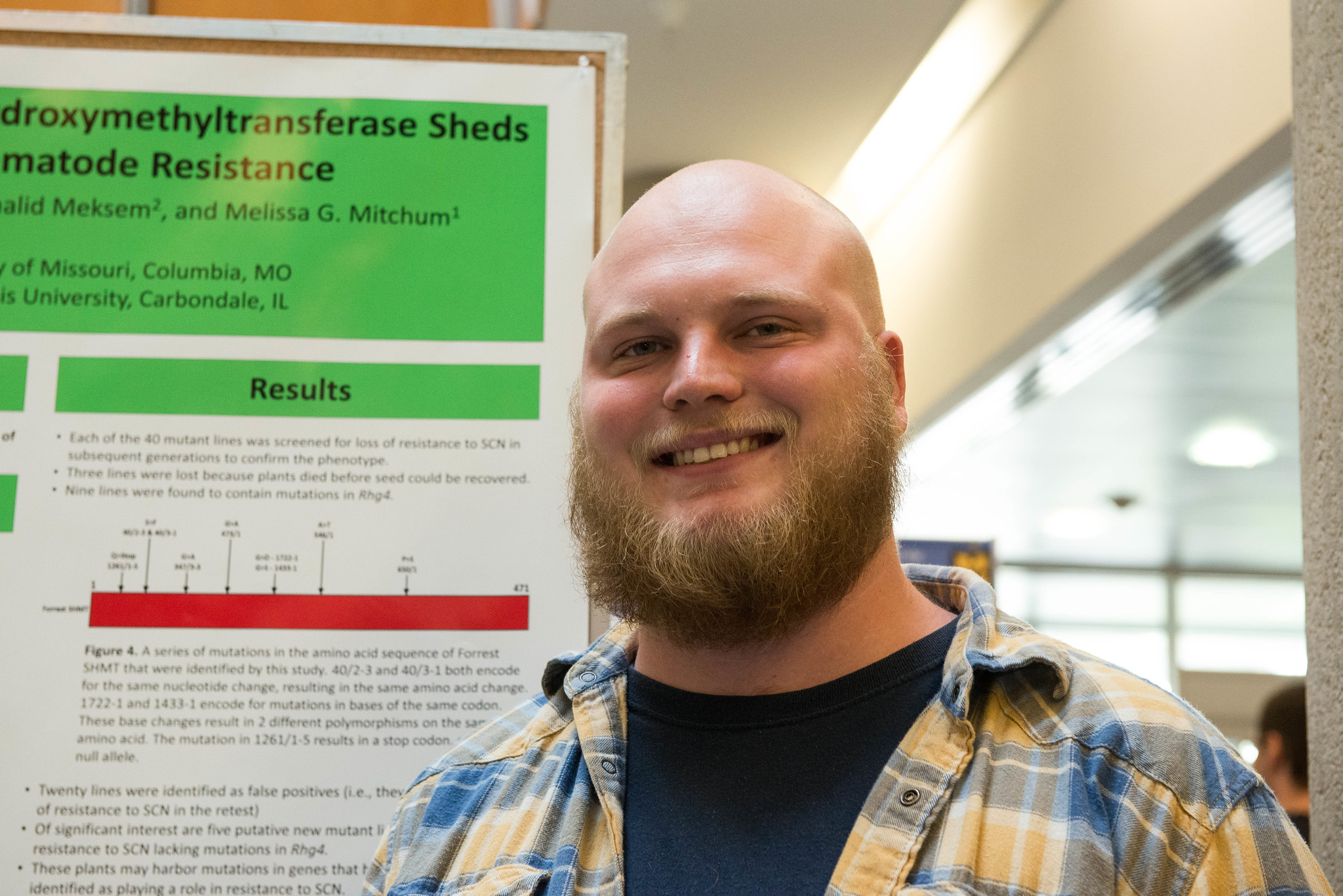
By Samantha Kummerer | Bond LSC
It might not sound like a traditional undergraduate experience, but Elizabeth Prenger and Andrew Ludwig found success studying a tiny parasitic worm.
It’s called the soybean cyst nematode (SCN) and it sucks more than a billion dollars a year from American soybean farmers. While farmers have used resistant soybeans and crop rotation to fight against the pest, the nematodes continue to gain ground against increasingly less effective methods to control them.
Working in the lab of Melissa Mitchum, a Professor of Plant Sciences at MU’s Bond Life Science Center, they helped understand how soybeans naturally resist this worm and how SCN evades these protections.
That work recently paid off as they saw their names published in the journal Plant Physiology in November 2017. The study explored the genetic mechanisms behind resistance in order to develop better prevention.

“If scientists can understand how resistance genes work and interact then that information can be applied in breeding and developing soybeans,” said former Mitchum lab member Elizabeth Prenger.
While the findings were published in 2017, for Prenger and Andrew Ludwig the research began several years ago.
Prenger came to college knowing she wanted to improve crops and help farmers like her family, she just wasn’t sure exactly how. She joined Mitchum’s lab as a freshman to begin to find out.
As a freshman and sophomore, Prenger worked to purify, sequence and analyze DNA of various soybeans to help further characterize the SHMT gene, a gene that plays a role in a plant’s ability to resist the pest. She also worked in the greenhouse to identify soybeans with mutations in this gene by infecting them with SCN.
Her fellowship supported by the MU Monsanto Undergraduate Research Program sparked her interest in plant genetics but she also realized she wanted more interaction with plants beyond the lab.
Without this early immersion into the lab, Prenger said it would have taken her longer to find her interests.
Now, as a graduate student, she studies soybean genetics at the University of Georgia.

Ludwig’s position in the lab helped him find his direction in science as well.
He applied for a position while still in high school through the MU Honors College Discovery Fellows Program. The fellowship funds and places undergraduates in labs across campus. His interest in the genetic modification of crops led him to the Mitchum lab.
For three years, Ludwig helped infect different mutants with the nematode and then compare the effect on resistance. This screening helped narrow down the genetic possibilities controlling soybean resistance to a single gene.
“We were hoping the soybeans would have a mutation in one of the resistance genes and then that mutation would cause the gene to cease function so you would see a lot of nematodes on a plant that shouldn’t have any,” he explained.
This experience taught Ludwig how to think like a scientist by developing problem-solving skills.
“I think working in the lab was an immensely valuable experience because I learned so much about what it is to be a scientist and it opened my eyes to a lot more of what the field of plant science really is,” he said.
It also taught him that a traditional lab work environment was not for him. As Ludwig begins to apply for graduate school he is planning to major in horticulture.
His goals changed from wanting to create GMO crops for other countries to now hoping to solve food insecurity closer to home by working with sustainable agriculture and food deserts.
Since joining Mitchum’s lab as undergraduates, both Prenger and Ludwig learned what it means to be scientists and shaped where they are today. The publication of the research that started the path to where they are today was a satisfying conclusion.
“It’s really rewarding to see that all the work exists outside of my lab notebook now,” Ludwig said.
Reflecting on their experience, both students urged other undergraduates to get in a lab as soon as they can to begin discovering themselves and science.
“Go for it. It’s a really helpful experience, it will make you better at what you do even if what you end up doing is different from what you thought you’d do,” Ludwig recommended.

